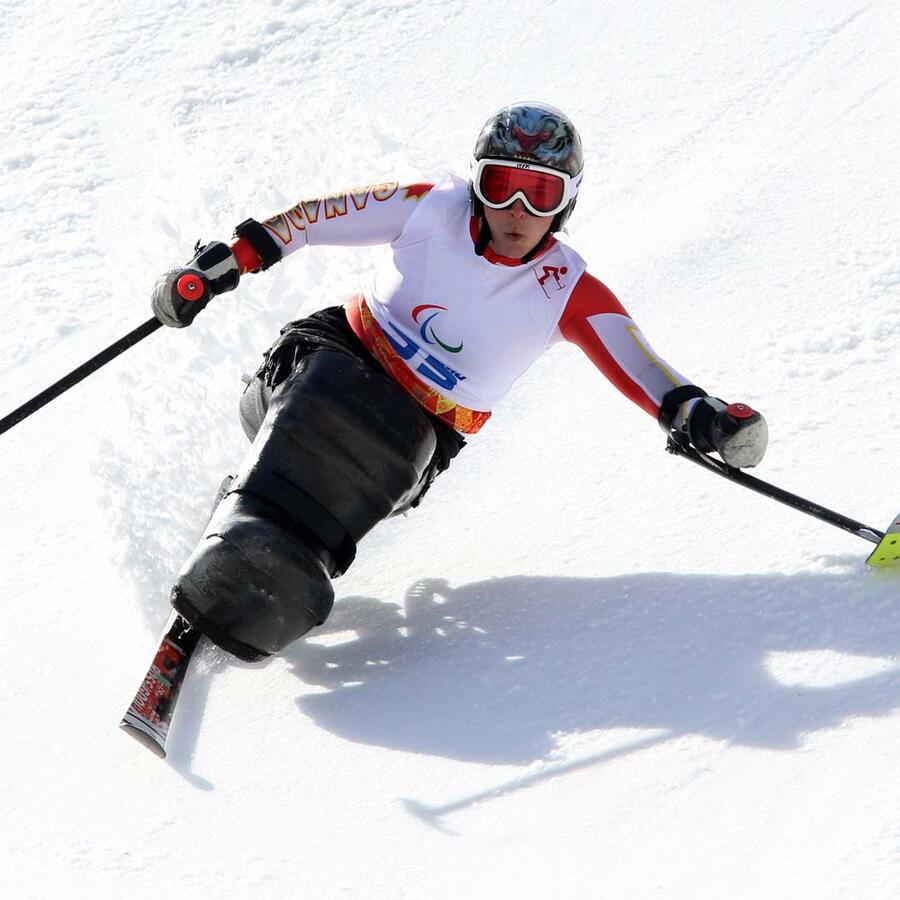Releases
International Paralympic Committee President highlights efforts of athletes and partnership with WADA following Beijing 2022

As the Beijing 2022 Paralympic Winter Games came to a close on 13 March, International Paralympic Committee (IPC) President and World Anti-Doping Agency (WADA) Foundation Board Member, Andrew Parsons, reflected on the event and praised the athletes for their remarkable performances, adding that the event would have a profound impact on future generations, both in China and around the world.
The Games saw 560 athletes participating across 78 medal events in six sports: alpine skiing, biathlon, cross-country skiing, ice hockey, snowboarding and wheelchair curling.
One of the highlights of the Games under the circumstances was the participation of Team Ukraine and Mr. Parsons was quick to praise this achievement. He said: “Given their traumatic journey, that they were even here in Beijing was amazing. But then for them to do so well on the field of play was just beautiful. We cannot begin to comprehend their world, and we know trying to perform during these Games was extremely hard for them, but they were an amazing credit to their nation. I believe that one day people will write books and films about this team.”
Anti-doping at the Games
Beijing 2022 was the first Winter Paralympic Games where the IPC fully managed its own anti-doping program. In total, close to 700 doping control samples (blood and urine) were taken at the Games, roughly the same as at the PyeongChang 2018 Paralympic Winter Games, where 677 samples were collected.
Tests were carried out based on anti-doping intelligence and included specific high-risk groups of athletes. In accordance with the World Anti-Doping Code (Code), samples will be kept by the IPC for up to 10 years for possible future reanalysis. In addition, for the first time at the Paralympic Winter Games, samples were also taken for dried blood spot analysis, an innovative testing method that carries a number of important advantages over traditional methods.
Working in partnership with the IPC and local organizers, a five-person WADA Independent Observer (IO) team was on the ground in Beijing to provide real-time feedback on athlete identification and notification, sample collection, chain of custody, Therapeutic Use Exemptions (TUEs), results management, and all other areas pertaining to the Code, International Standards and related Technical Documents.
The IPC President said: “As always, the IO and IPC teams worked well together to ensure that the Games’ anti-doping program was as effective as possible. From our perspective, it went very well. Not being able to visit Beijing prior to the Games and with the Tokyo 2020 delay, it would have been understandable if there had been difficulties, but the local organizing committee’s anti-doping staff, with the support of the China Anti-Doping Agency were very well prepared and our IPC anti-doping team and the international experts performed very well.”
The IPC President added that the IO program feedback from Tokyo 2020 was well-received, although with such a short turnaround time between the two editions of the Games, it was difficult to incorporate all the suggestions in time for Beijing 2022. Nevertheless, he said the IPC anti-doping team collected a far higher number of samples per athlete in Beijing than in Tokyo, with an “unprecedented” number of Athlete Biological Passport (ABP) blood samples taken. In addition, the intelligence regarding ABPs was also expanded in Beijing, enabling more intelligent testing to take place and thereby protecting the integrity of the competition further.
A strong partnership
Mr. Parsons said the anti-doping program at the Paralympics also benefitted from the excellent relationship between the IPC and WADA, which for Beijing 2022 saw the two organizations team up to offer a number of anti-doping initiatives, both in the lead-up to and during the Games.
They included an e-learning course that was specifically geared towards Para athletes (including guides) and coaches preparing for Beijing 2022. Known as ADEL (Anti-Doping Education and Learning) for Beijing 2022 Paralympic Winter Games, the course was jointly developed by WADA and the IPC to educate Para athletes and their support personnel on anti-doping rules, procedures and requirements.
“I believe the WADA-IPC relationship has never been better,” the IPC President said, adding that he has enjoyed strong ties with WADA President Witold Bańka since the latter assumed his role in November 2019. “WADA assists the IPC in its day-to-day work as the anti-doping authority for the IPC sports and the Paralympic Games, with the ADEL Tokyo and Beijing education programs being an excellent example of the cooperation.
“It was a good combination. WADA was able to leverage its education and learning platform and general anti-doping expertise, with the IPC able to bring a specialized Paralympic athlete point of view and knowledge of Games programs. Beyond the IPC’s regular work, WADA listened to the IPC about the lack of testing and other anti-doping resources being available to Paralympic athletes. WADA has been a champion of ensuring that National Anti-Doping Organizations and International Federations provide service to their Paralympic population and treat them as the elite athletes that they are.”
Summing up the Games, he added: “The organizing committee provided the best possible service structure to the athletes, so I’m really happy with the outcome of these Games. Also, I think we had more broadcasters than ever before at a Paralympic Winter Games, so the message of inclusion has been sent out to the world. More importantly, it has been really well-received and I think it will have a profound impact for future generations.”

